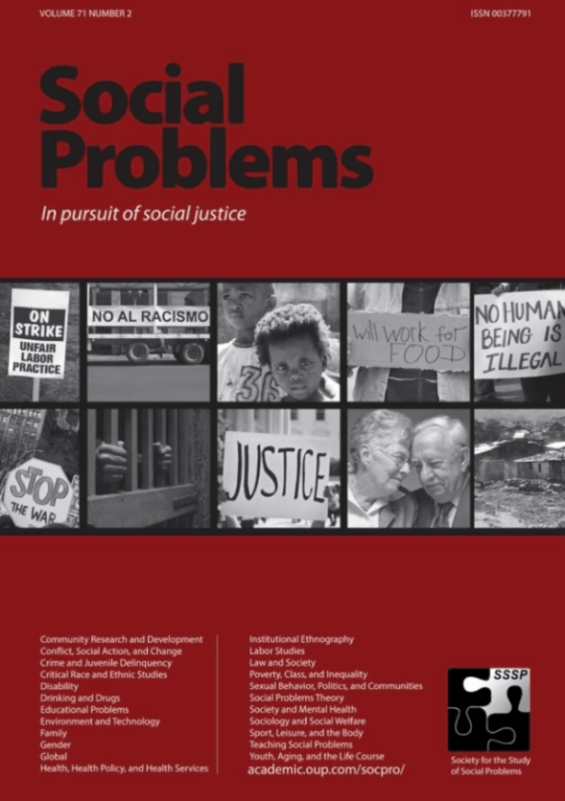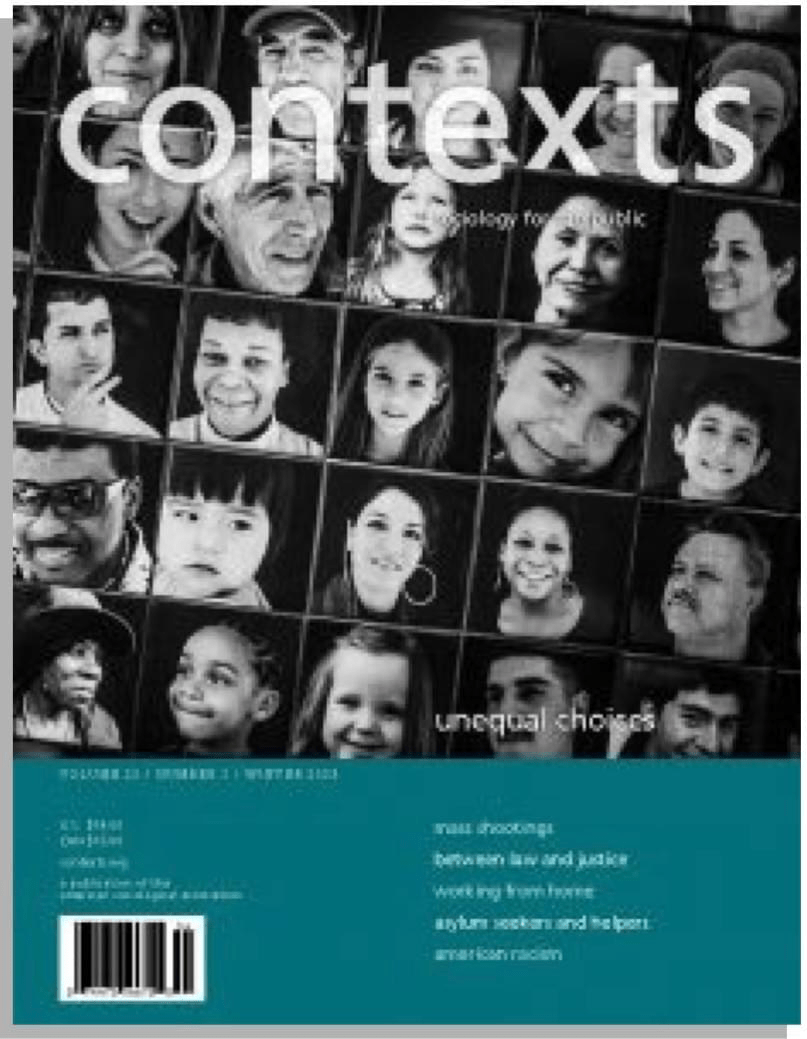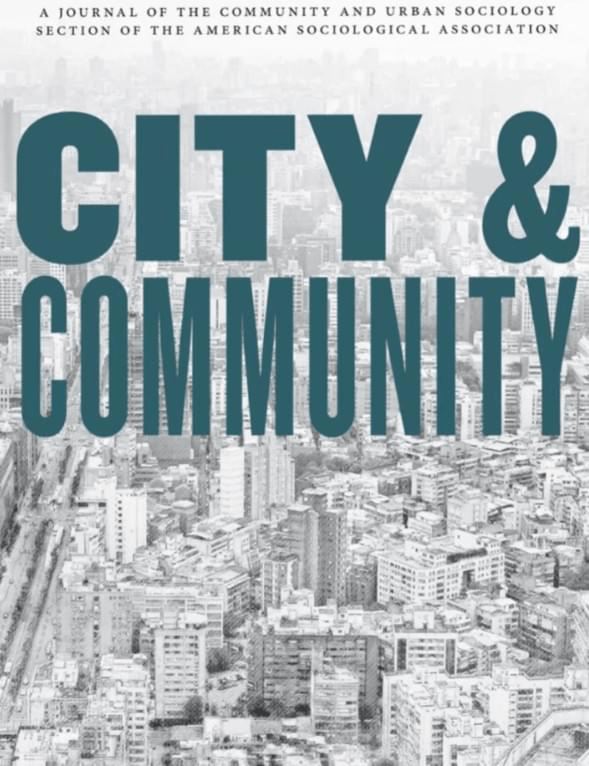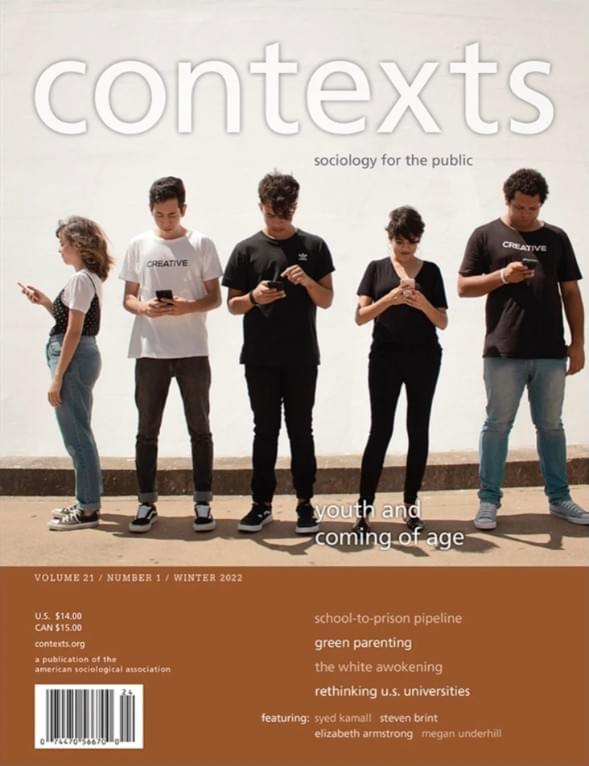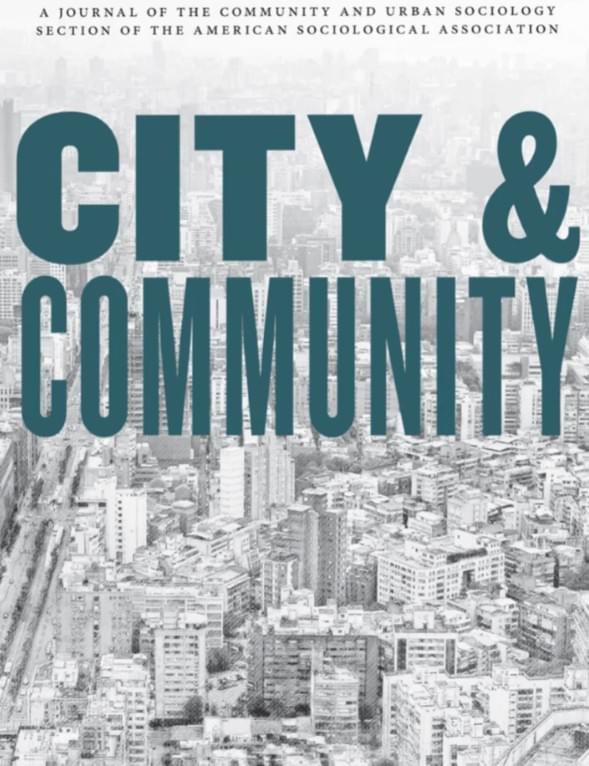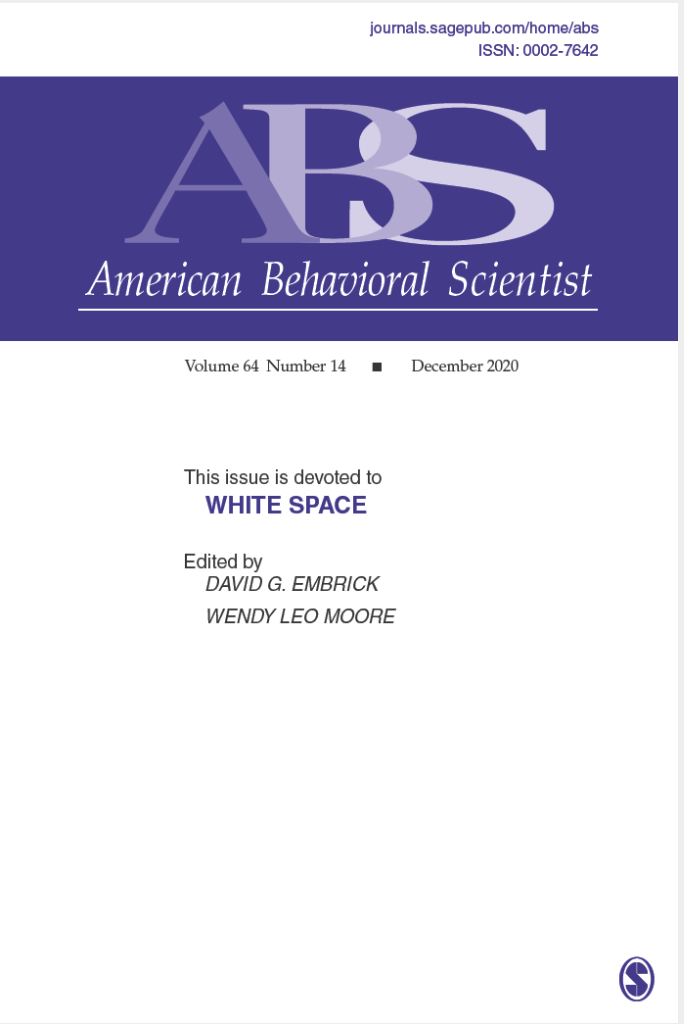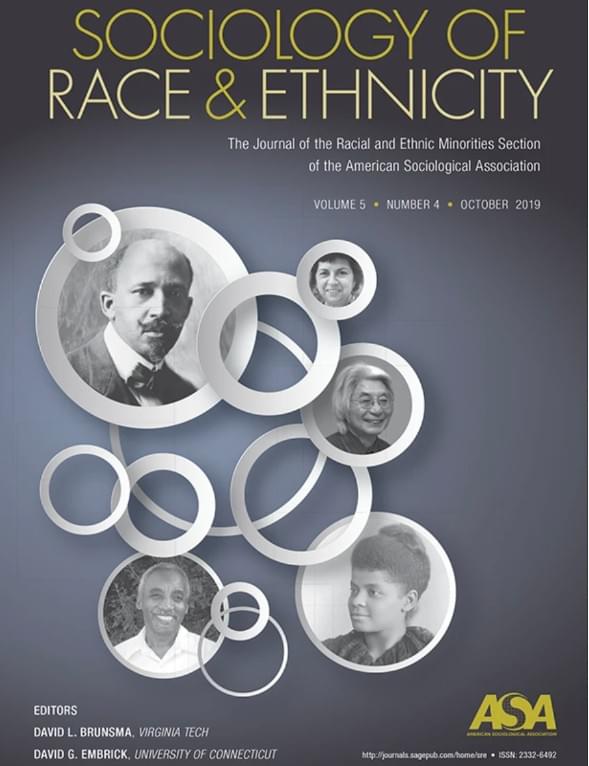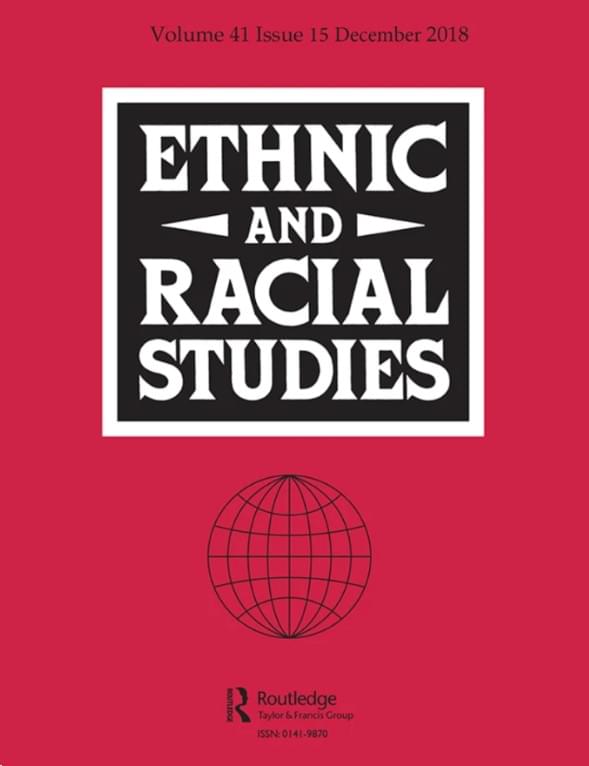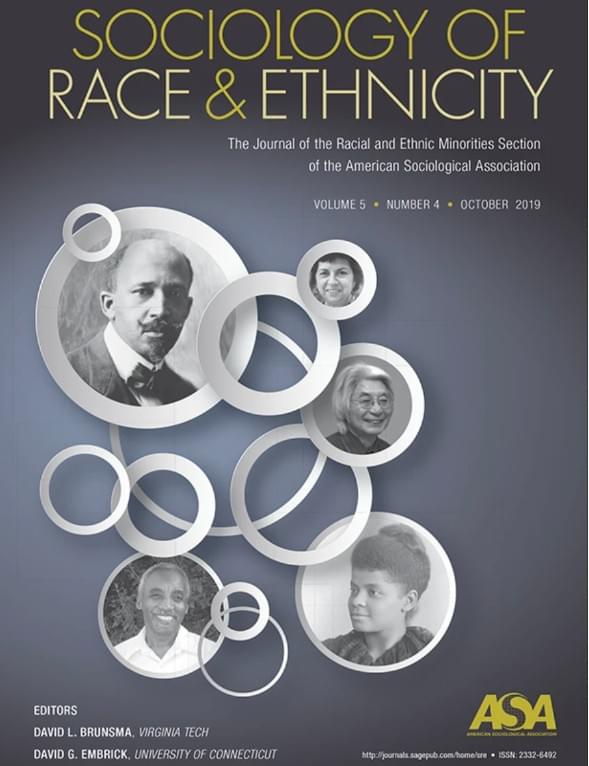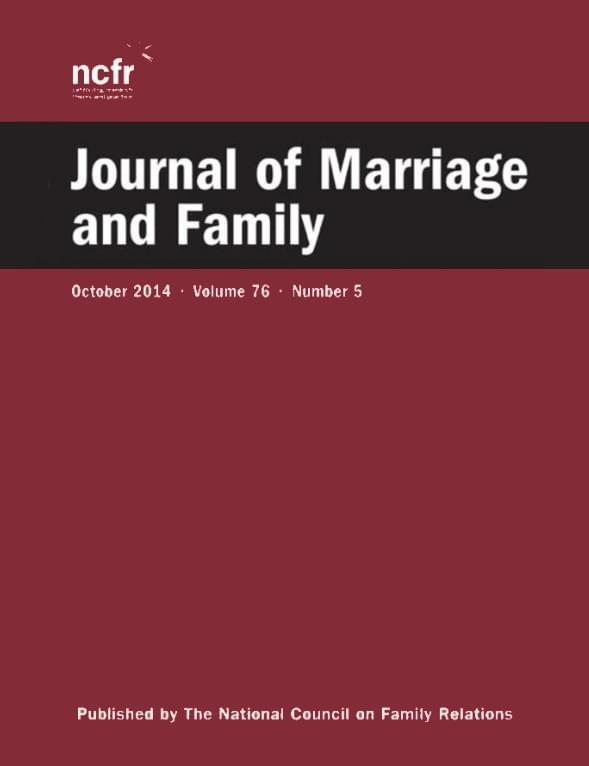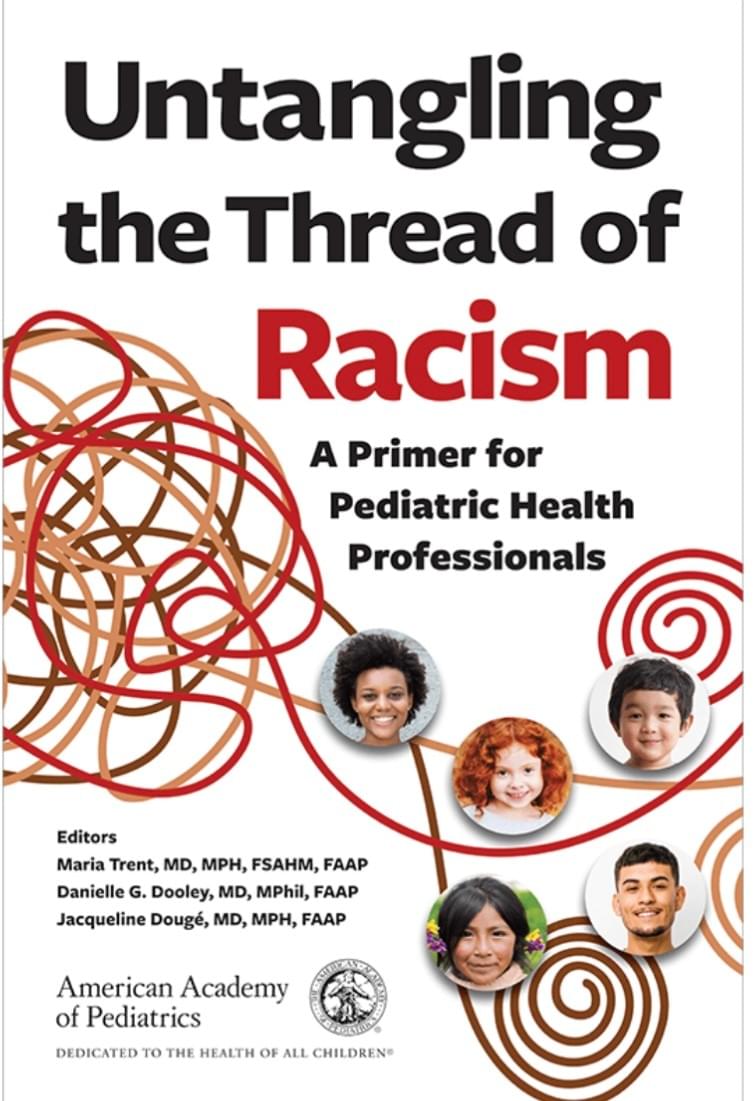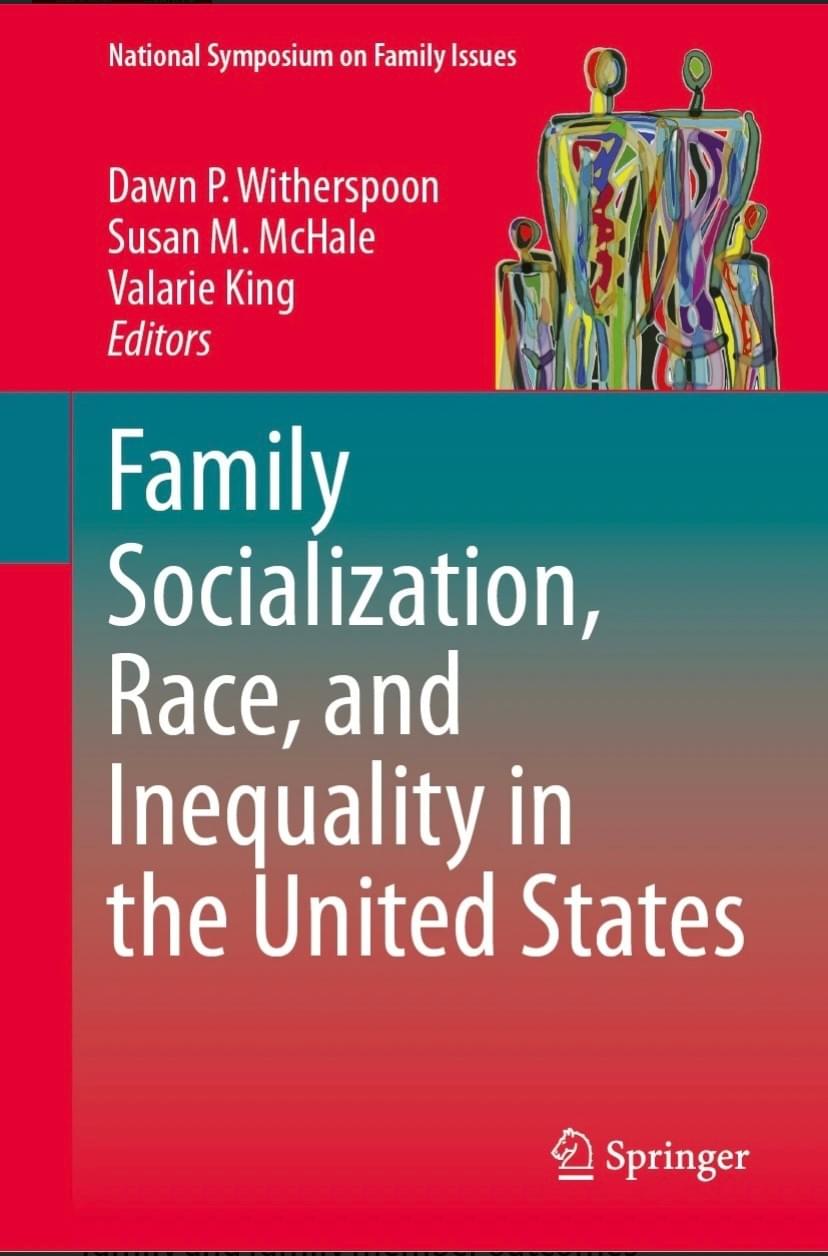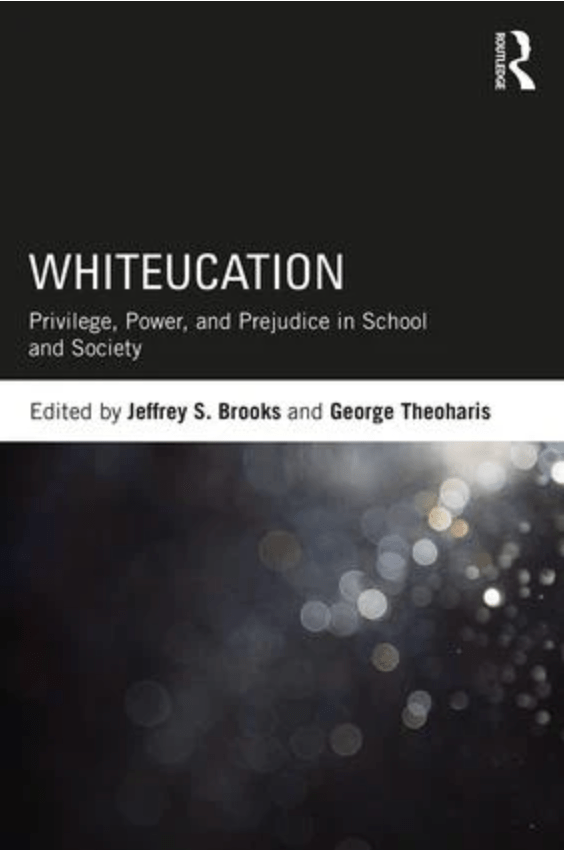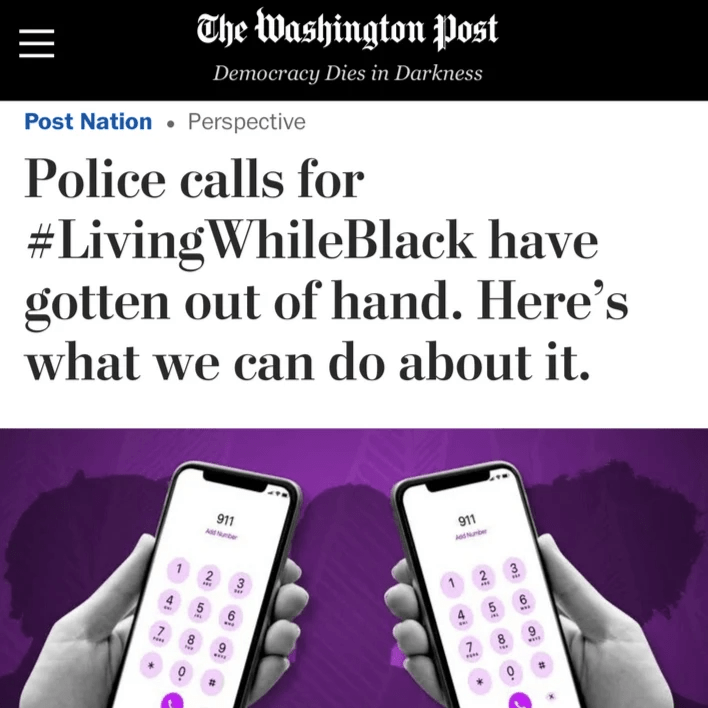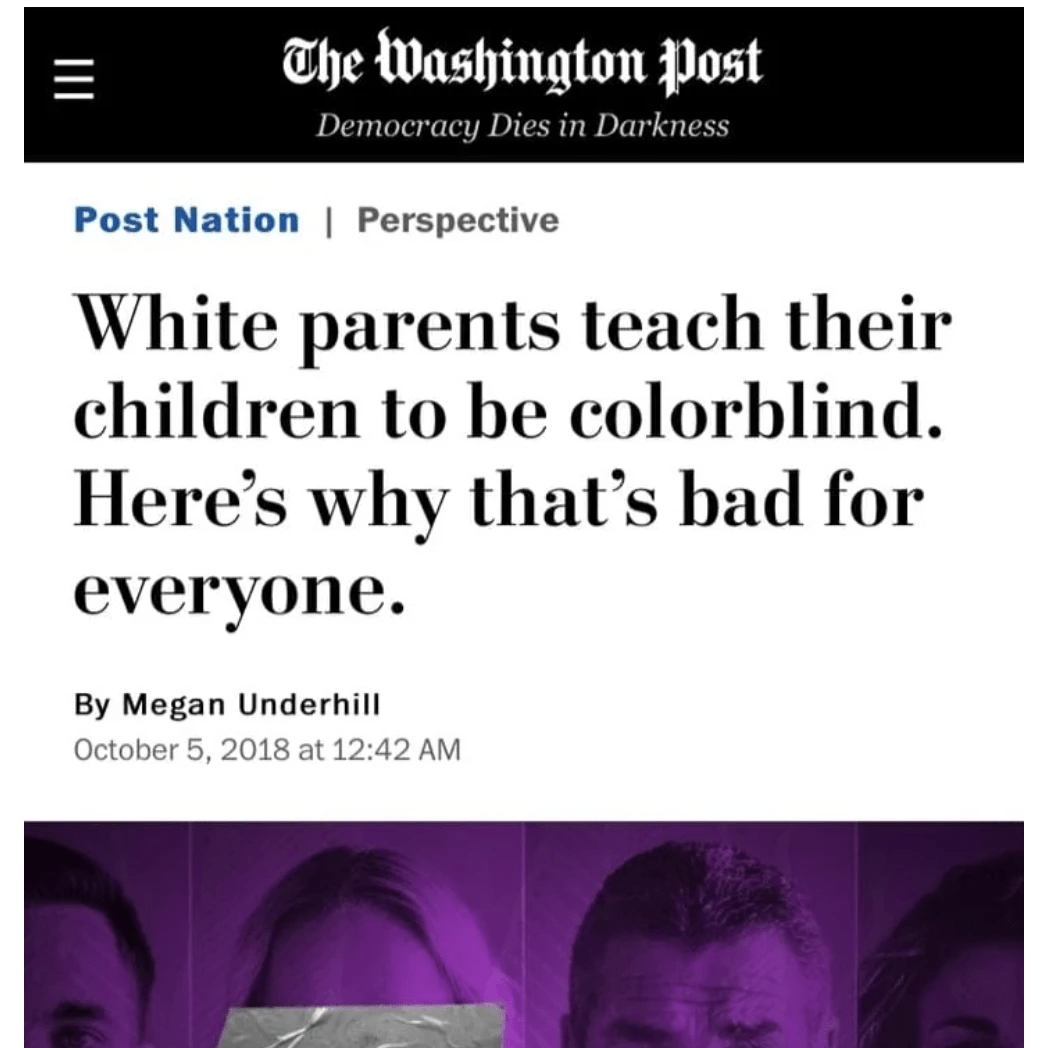
DR. MEGAN R.
UNDERHILL
Research
Journal Articles

Kinkaid, Reilly and Megan R. Underhill. 2024. "Go Ask Mom: The Gendered Dynamics of Color-Conscious Racial Socialization Among White Parents." Social Problems.
Abstract: While most white parents avoid discussing race and racism with their children or tell them to be color-blind, recent research suggests that a growing number of color-conscious white parents intentionally talk with their children about racism as an ongoing, systemic issue. However, this research gives little attention to parents’ gender. Using interviews with 28 color-conscious white heterosexual parents, we examine how and why gender influences parents’ race-related conversations with their children. We show that, in theory, mothers and fathers share similar beliefs about race/racism and the need to discuss it with their children. In practice, however, mothers overwhelmingly shoulder these conversations. We trace this paradox back to mothers’ distinctively color-conscious refashioning of intensive mothering practices—which involves both personal and community-level work at the race-parenting intersection—that fathers do not undertake. This gender gap in parents’ personal/community work around race influences contrasting approaches to race-related conversations with their children, with mothers being more proactive and fathers being more passive. This dynamic ultimately casts race as a “Mom topic” within color-conscious white families. We argue that this can inhibit more egalitarian realizations of color-conscious white racial socialization and carries important implications for the sustainability and outcomes of these efforts.

Mayorga, Sarah, Megan R. Underhill & Lauren Crosser. 2023. "Aisle Inequality.” Contexts, 22(1): 24-29.
Abstract: When a simple trip to the grocery store is anything but, the reality of unequal choices forces us to rethink the American notion that consumption is freedom. By adopting a sociological perspective, we argue that a focus on “choices” obscures systems of inequality that shape how we shop for groceries in the United States. The rhetoric of choice naturalizes the good and bad qualities of places without interrogating the policies, practices, and systems that made them what they are today. Making choices is an exercise of power. And while we all have some capacity to choose, we do not have access to the same range of possibilities. In the United States, our choices are shaped by racism, class, and other systems of inequality. Yet the prevailing ideology of consumption as freedom, whereby our ability to shop is an expression of freedom under capitalism, reinforces inequalities by focusing on individual choices as “good” or “bad.” In this essay, we explore the uneven qualities of choice for Black, White, poor, and working-class residents of Riverside, a neighborhood in southern Ohio.

Mayorga, Sarah, Megan R. Underhill, and Lauren Crosser. 2022. "I Hate that Food Lion: Grocery Shopping, Racial Capitalism, and Everyday Disinvestment."
City and Community.
Abstract: Using interview data from three mixed-income neighborhoods—one predominantly white and two multiracial neighborhoods—we find that an overwhelming majority of white, middle-class respondents did not shop in their local grocery store (n = 68). To explain this phenomenon, we propose a concept of everyday disinvestment to capture the interplay between individual-level decision-making and structural-level disinvestment under racial capitalism. We identify three practices of everyday disinvestment—avoidance, distancing, and selective engagement—as well as the rationalizations residents present for their behaviors. We argue racial capitalist ideologies of antiblackness and consumption as freedom are foundational to residents’ justifications of disinvestment from grocery stores in mixed-income communities. Everyday disinvestment not only expands our understanding of disinvestment as a mechanism of racial capitalism, but it deepens our understanding of food apartheid as a relational process.

Underhill, Megan R. and Lauren Simms. 2022. "Parents of the White Awokening." Contexts, 21(1): 20-25.
Abstract: This article investigates the relationship between BLM activism and white racial socialization focusing specifically on how BLM activism inspired a contingent of liberal, white parents to begin speaking with their children about race, racial inequality and whiteness—subjects they actively avoided before the Ferguson protests in 2014.

Underhill, Megan R. 2021. "Managing Difference:White Parenting Practices in Socioeconomically Diverse Neighborhoods.” City and Community, 20(2): 79-98.
Abstract: Drawing on 40 interviews with white parents in two mixed-income neighborhoods—one that is majority-white and the other that is multiracial, this article examines how residence in socioeconomically diverse neighborhoods conditions the parenting practices of middle-class whites, specifically concerning parents’ management of their children’s contact with the poor. The data reveal that white parents in both neighborhoods work to ensure symbolic and spatial distance between their children and their poor neighbors resulting in distinctive patterns of micro-segregation in each neighborhood. However, how parents engage in this work depends upon the race of their neighbors and the block-level geography of their community. I find that parents deploy more contact-avoidant practices towards their poor white rather than their poor black neighbors. Among participants, poor whites conjure feelings of disgust and are actively avoided, while poor black residents provoke feelings of ambivalence, as contact with them is judged to be both valuable and threatening.

Brunsma, David L; Nathaniel G Chapman, Joong Won Kim, J Slade Lellock, Megan R. Underhill, Erik T Withers, Jennifer Padilla Wyse. 2020. "The Culture of White Space: On The Racialized Production of Meaning" American Behavioral Scientist, 64(14): 2001-2015.
Abstract: This article focuses on processes of meaning making in White spaces as the glue that holds their social structures together. Understanding White spaces and how they operate necessitates theoretical development from a cultural perspective. The authors’ research empirically engages with a wide range of White spaces—neighborhoods, subcultural scenes, craft breweries, online digital platforms, and academia, to name a few—and do so from a theoretical space where the two areas of sociology meet: race and culture. We engage with three key questions to theorize the culture of White space: (a) How do these White spaces work? (b) How are these White spaces challenged? (c) How do these White spaces change and/or reproduce themselves? From these engagements, this article develops a general approach to understanding White spaces through understanding their racialized processes of meaning making.

Underhill, Megan R. 2019. “Diversity is Important to Me: White Parents and Exposure-to-Diversity Parenting Practices.” Sociology of Race and Ethnicity, 5(4): 486-499.
Abstract: Drawing on interviews with 40 parents in Cincinnati, Ohio, the author explores how “exposure to diversity,” an implicit racial socialization practice, has become a defining feature of how some middle-class white parents teach their children about race and reflect on what it means to be a good white parent. Exposure to diversity involves white parents’ active efforts to expose their children to people of color via trips to multiracial parks, enrollment in multiracial schools, or residence in multiracial neighborhoods. The author argues that white parents’ efforts are informed by their adherence to both a “diversity ideology” wherein racial diversity is frequently, but not always, framed as a positive social dynamic that enriches their family’s white life, and a middle-class desire to craft a high-status white child via distinction-oriented parenting practices. Taken together, white middle-class parents pursue an exposure-to-diversity strategy because they believe, whether consciously or not, that diversity provides them and their children with the means to facilitate small-scale social change and to craft a comfortable, open-minded white child who possesses racial and class distinction.

Abstract: This paper examines what white, middle-class parents report saying to their children about racial tension and racial protest when events like Michael Brown’s death and the Ferguson protests are the top news stories. The data come from interviews with forty white, middle-class parents in 2014–15. The study results indicate that few parents recalled speaking with their children about racial tension or racial protest even when such discussions were highly visible in the news and on social media. I argue parents’ silence stemmed from a desire to create a protected, worry-free childhood combined with an inability to understand how such subjects related to their white life. However, not all parents were silent. Twelve participants reported speaking with their children about these subjects via a neutral or a defensive colour-blind frame. Only two participants drew attention to issues of power and privilege.

Abstract: In this response to George Weddington’s critique of their recent article, the authors argue that Weddington rightfully critiques them for not paying enough attention to the role of psychoanalysis (exemplified by Frantz Fanon) in Afro-pessimist theory and for not giving primacy to the political ontology of blackness in Afro-pessimist thought. However, his critique is hindered by his mischaracterizing the authors’ argument as saying that black political ontology is merely different, not singular, and his lack of engagement with the authors’ analysis of critical race theory. The authors address these issues and suggest that Weddington’s reading of Afro-pessimist claims as empirically unverifiable is inconsistent with his proposal for incorporating the theory into ethnographic projects and would lead to the abandonment of the sociological project.

Abstract: Much work in the sociology of race and ethnicity centers on an underlying narrative of racial progress. Progress narratives are typically conceptualized as a linear process of slow, yet inevitable, improvement. Drawing on Critical Race Theory and Afro-Pessimism, theoretical perspectives that emerged outside of the discipline of sociology, this paper urges a rethinking of linear progress narratives. First we elucidate the central tenets of these theoretical paradigms. We then apply them to diversity and labor market research, providing suggestions for how sociology can incorporate these perspectives.

Abstract: Previous work on social control—the direct and indirect regulation of an individual's health behaviors by others—suggests that parent–child relationships promote healthy diet and exercise. Yet parenthood is associated with less healthy diet and exercise patterns. The authors investigated this paradox by examining social control processes in 40 in‐depth interviews with mothers and fathers. They found that parenthood involves social control processes that both promote and compromise healthy behavior, contributing to contradictory perceived effects of parenthood on health behavior. Moreover, the dynamics of social control appear to unfold in different ways for mothers and fathers and depend on the child's gender and life stage, suggesting that gender and age dyads are central to understanding the seemingly contradictory consequences of parenthood at the population level. These articulations of gendered social control processes provide new insight into the consequences of the gendered organization of parenthood for diet and exercise.
Book Chapters

Hagerman, Margaret and Megan R. Underhill. 2023. “Addressing Racism with White Children.” In Untangling the Thread of Racism: A Primer for Health Professionals. American Academy of Pediatrics.

Underhill, Megan R. and Makenna Clark. 2023. “Antiracism is a Verb: The Promise and Pitfalls of Antiracist White Parenting.” In Family Socialization, Race, and Inequality in the United States. ed. Susan M. McHale, Valarie King, and Dawn Witherspoon. Springer.
Newspaper Articles
Underhill, Megan R. 2018. “Police Calls for #LivingWhileBlack Have Gotten Out of Hand. Here's What We Can Do About It.”
© 2022
